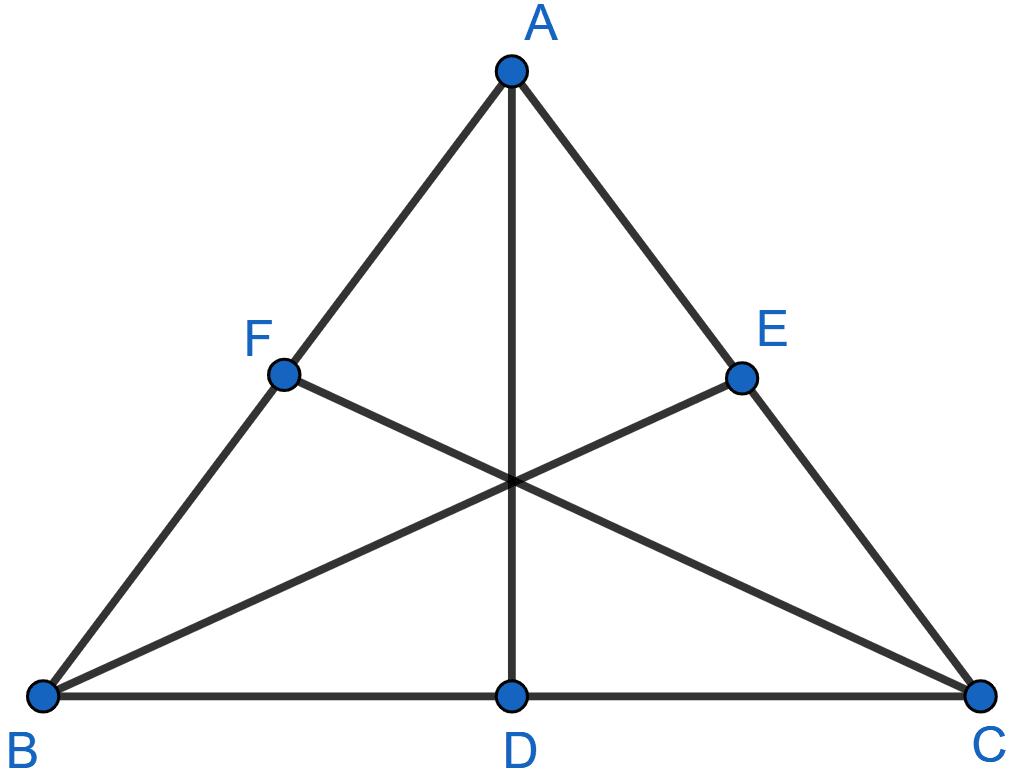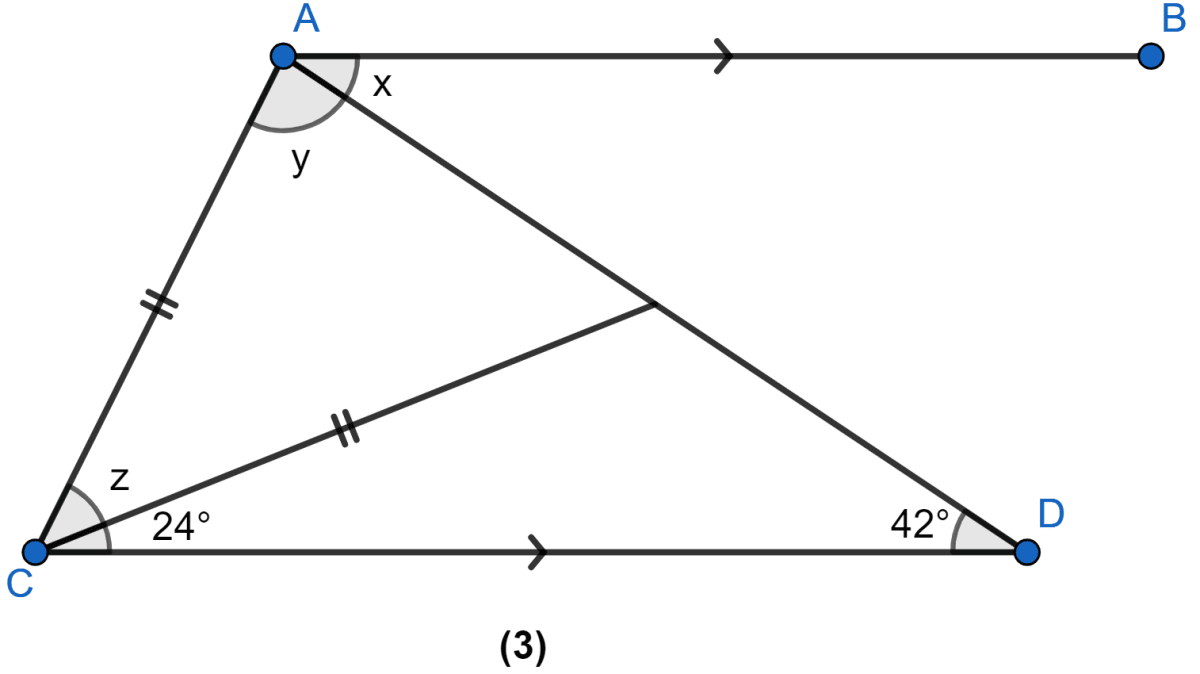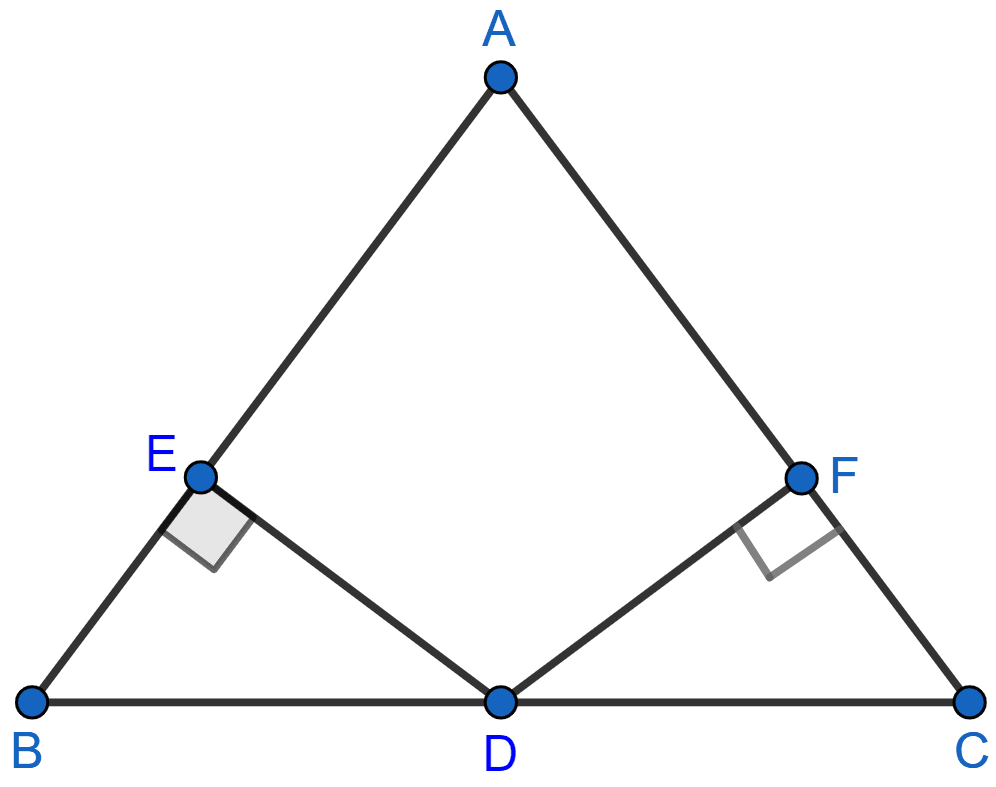Mathematics
In the adjoining figure, AD, BE and CF are altitudes of △ABC. If AD = BE = CF, prove that ABC is an equilateral triangle.

Answer
AD, BE and CF are altitudes of △ABC and
AD = BE = CF
Considering △BEC and △BFC,
Hypotenuse BC = BC (Common)
Side BE = CF (Given)
As altitudes are perpendicular to the sides,
∠CFB = ∠CEB = 90°
Hence, △BEC ≅ △BFC by RHS axiom.
We know that corresponding parts of congruent triangle are equal,
∴ ∠C = ∠B
⇒ AB = AC (Sides opposite to equal angles) ………(i)
Considering △CFA and △ADC,
AD = CF (Given)
∠ADC = ∠CFA = 90° (As altitudes are perpendicular to sides)
AC = AC (Common)
Hence, △CFA ≅ △ADC by RHS axiom.
We know that corresponding parts of congruent triangle are equal,
∴ ∠A = ∠C
⇒ AB = BC (Sides opposite to equal angles) ………(ii)
From (i) and (ii)
AB = BC = AC
△ABC is an equilateral triangle.
Hence, proved that △ABC is an equilateral triangle.
Related Questions
In the figure (3) given below, AB || CD. Find the values of x, y and z.

In the adjoining figure, D is the midpoint of BC, DE and DF are perpendiculars to AB and AC respectively such that DE = DF. Prove that ABC is an isosceles triangle.

In a triangle ABC, AB = AC, D and E are points on the sides AB and AC respectively such that BD = CE. Show that:
(i) △DBC ≅ △ECB
(ii) ∠DCB = ∠EBC
(iii) OB = OC, where O is the point of intersection of BE and CD.
ABC is an isosceles triangle in which AB = AC. P is any point in the interior of △ABC such that ∠ABP = ∠ACP. Prove that
(a) BP = CP
(b) AP bisects ∠BAC.